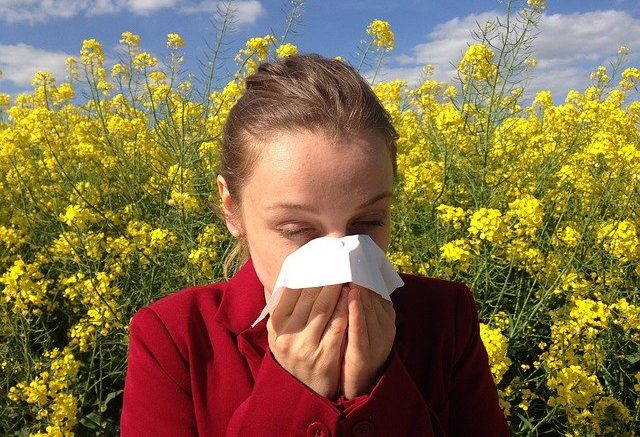Ah, allergy season—when the flowers bloom, grass grows, and your sinuses feel like they’re attacking you from the inside out. If you’re among the millions who dread this yearly event, fear not! This essential guide will walk you through common allergy symptoms and triggers, how to create a comprehensive allergy management plan, and finding the right non-drowsy allergy medicine to help you breathe easy and enjoy the season. Let’s dive in and get you some relief!
Understanding Allergies: Common Symptoms and Triggers
Various environmental factors can trigger allergies, and it’s essential to become familiar with the most common symptoms and causes. This understanding will help you better manage your allergies and choose the most effective treatments.
Pollen allergies are among the most common, often causing symptoms such as sneezing, itchy eyes, and a runny nose during specific periods of the year. If you notice these symptoms during spring, you may be sensitive to tree pollen; grass pollen may be the culprit in summer. In the fall, ragweed pollen is a common allergen.
Pet allergies are another frequently experienced trigger, with animal dander, saliva, and urine leading causes of reactions. Symptoms can range from mild discomfort to severe reactions, such as sneezing, itchy skin, and even difficulty breathing.
Mold allergies are also something to be aware of, especially in damp and humid environments. Mold spores can circulate in the air and trigger allergic reactions when inhaled. Symptoms may include nasal congestion, sneezing, and even asthma-like symptoms.
As you can see, there is a wide range of potential allergy triggers and symptoms, so creating a comprehensive management plan is crucial. After identifying possible triggers, taking steps to reduce exposure and monitor your symptoms’ progression is essential. And, of course, finding the proper allergy medications—such as non-drowsy allergy medicine—will play a significant role in your overall allergy management.
Pollen Allergies
Pollen allergies, commonly called hay fever or seasonal allergies, are caused by tree, grass, and weed pollen. Symptoms include sneezing, itchy eyes, and a runny nose, which can be aggravated by spending time outdoors.
Pet Allergies
Pet allergies are another common cause of allergy symptoms triggered by proteins in an animal’s skin cells, urine, and saliva. Even animals that don’t shed can elicit reactions, as allergens can linger in the air, furniture, or clothing.

Mold Allergies
Mold allergies occur when your immune system reacts to mold spores in the air. Mold can be found indoors and outdoors, often in damp, humid places like basements, bathrooms, and near air conditioning units.
Creating a Comprehensive Allergy Management Plan
A comprehensive allergy management plan starts with identifying your specific triggers. This may involve keeping a symptom diary to track what you were exposed to when symptoms arose or even getting allergy tested. Once you know your triggers, you can reduce exposure, such as changing daily routines and cleaning methods and improving indoor air quality. Finally, keep tabs on your symptoms and progress by consistently monitoring and adjusting your plan based on your improvements or setbacks. Proper management is crucial for finding relief during allergy season.
Identifying Triggers
To effectively manage allergies, it’s crucial to identify your triggers. Keep a journal of symptoms and possible causes to help pinpoint what’s exacerbating your allergies and inform your management plan.
Reducing Exposure
To reduce exposure, keep windows closed during high pollen days, bathe pets regularly, and clean surfaces frequently to remove allergens. Monitor local pollen and mold counts to plan outings accordingly.
Monitoring Symptoms and Progress
To ensure your allergy management plan is effective, keep a diary of your symptoms, monitor your progress, and adjust your plan as necessary.
Finding the Right Allergy Medications
So, you’ve identified your triggers and established an allergy management plan, but you might still need some assistance from medication to keep those irritating symptoms in check. The good news is that various non-drowsy allergy medicines are available to help you stay comfortable and clear-headed during allergy season.
Antihistamines are a popular choice, and they work by blocking the action of histamine, the substance that causes allergy symptoms. Conversely, decongestants focus on reducing nasal congestion by narrowing the blood vessels in the nasal passages. For those dealing with multiple symptoms, combination medications that include an antihistamine and a decongestant can be a lifesaver.
If traditional allergy medications aren’t cutting it, alternative treatments such as nasal corticosteroids may relieve it. These prescription nasal sprays reduce inflammation and can be particularly helpful for those suffering from stubborn allergies.

Take your time experimenting with different allergy medications to find the most effective treatment for your specific symptoms. Also, don’t hesitate to talk to your healthcare provider about your options, as they can guide you toward the best course of action. Remember, no need to suffer through allergy season – non-drowsy allergy medicines can keep you feeling your best all season.
Antihistamines
Antihistamines are a popular choice for non-drowsy allergy medicine, as they help reduce symptoms by blocking histamine production in the body. They are available in various forms, such as tablets, capsules, liquids, and nasal sprays, making them easily adaptable to your needs.
Decongestants
Decongestants, another popular non-drowsy allergy medicine, work by narrowing blood vessels to reduce nasal congestion. Available in pill, liquid, or nasal spray form, they can relieve sinus pressure and stuffiness, but be mindful of potential side effects like increased heart rate or blood pressure.
Combination Medications
Combination medications can be helpful for those dealing with multiple allergy symptoms, as they typically contain both an antihistamine and a decongestant. Some popular non-drowsy options include Claritin-D and Allegra-D.
Alternative Treatments
Natural remedies like butterbur, Quercetin, and saline nasal rinses can help alleviate symptoms for those seeking alternative treatments. Additionally, acupuncture may provide relief for some individuals.
Managing Allergy Symptoms at Home
When it comes to managing allergies at home, there are several steps you can take to minimize your exposure to allergens and reduce your symptoms. First, establish a regular cleaning routine to clear your living environment of dust, pet dander, and mold. This includes vacuuming carpets, washing bed linens, and disinfecting surfaces. Next, improve indoor air quality by investing in air purifiers, maintaining proper ventilation, and using allergy-proof covers for mattresses and pillows. Lastly, consider trying natural remedies and lifestyle changes to ease your symptoms, such as using saline nasal rinses, drinking herbal teas, and practicing stress-reduction techniques. By taking these measures, you can create a more comfortable and allergen-free space to help alleviate your allergy symptoms.
Cleaning Tips to Reduce Allergens
To minimize allergens at home, maintain a clean environment by vacuuming carpets and upholstery often, washing bed linens and curtains regularly, and dusting surfaces frequently. This helps remove common allergens like pollen, pet dander, and mold.
Controlling Indoor Air Quality
Invest in an air purifier with a HEPA filter to control indoor air quality to capture allergens. Keep windows closed during high pollen days; use air conditioning instead. Regularly change air filters to ensure pollutants are removed efficiently.
Using Natural Remedies and Lifestyle Changes
Natural remedies and lifestyle changes can also help manage allergy symptoms. Boost your immune system with a healthy diet, exercise, and stress management, and consider using herbal supplements or essential oils.
When to Consult an Allergist
If you’ve tried a variety of non-drowsy allergy medicines and haven’t found relief, or if your symptoms are worsening, it may be time to consult an allergist. They can help determine if allergy testing is necessary and guide you through potential immunotherapy options. Personalized treatments like allergy shots or under-the-tongue tablets can help improve your quality of life and manage allergy symptoms more effectively than over-the-counter medications alone.
Determining if Allergy Testing is Necessary
Allergy testing can help you pinpoint specific triggers and determine the most effective treatment approach. Consider testing if you’ve tried various non-drowsy allergy medications with little success or if you experience chronic symptoms despite taking preventive measures. Consult with an allergist to discuss the benefits of testing.
Understanding Immunotherapy Options
Immunotherapy, or allergy shots, can help build your tolerance to allergens by gradually exposing you to them. This long-term treatment option can reduce the severity of allergy symptoms and may even eliminate them altogether.
Conclusion
In conclusion, navigating allergy season can be daunting, but symptoms can be controlled with the proper management plan and medication. Always remember to identify triggers, reduce exposure, and monitor progress. Don’t hesitate to consult an allergist when necessary, and ensure you find the perfect non-drowsy allergy medicine for your unique situation. Stay proactive and take charge of your allergies—your health is worth it!
